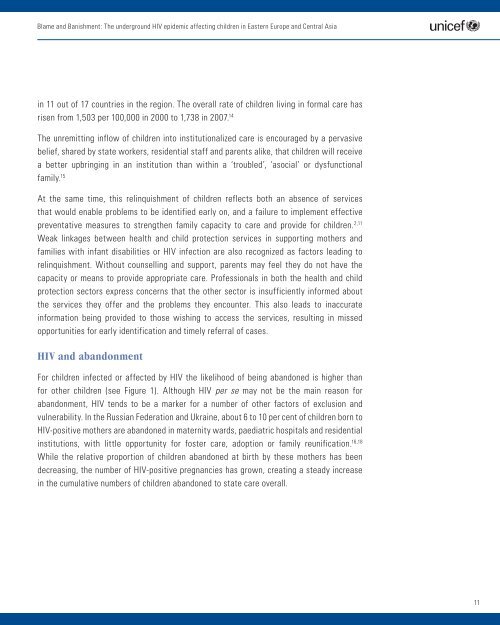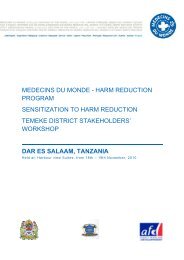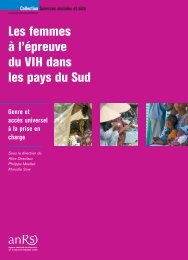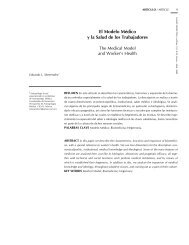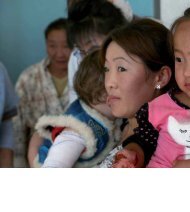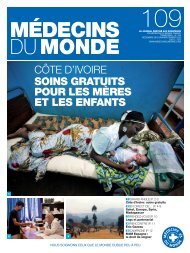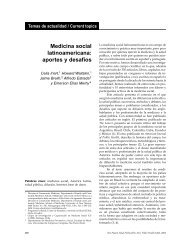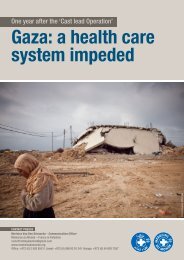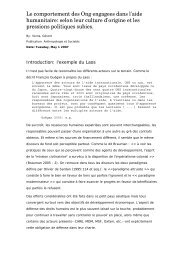Blame & Banishment - Médecins du Monde
Blame & Banishment - Médecins du Monde
Blame & Banishment - Médecins du Monde
Create successful ePaper yourself
Turn your PDF publications into a flip-book with our unique Google optimized e-Paper software.
<strong>Blame</strong> and <strong>Banishment</strong>: The underground HIV epidemic affecting children in Eastern Europe and Central Asia<br />
in 11 out of 17 countries in the region. The overall rate of children living in formal care has<br />
risen from 1,503 per 100,000 in 2000 to 1,738 in 2007. 14<br />
The unremitting inflow of children into institutionalized care is encouraged by a pervasive<br />
belief, shared by state workers, residential staff and parents alike, that children will receive<br />
a better upbringing in an institution than within a ‘troubled’, ‘asocial’ or dysfunctional<br />
family. 15<br />
At the same time, this relinquishment of children reflects both an absence of services<br />
that would enable problems to be identified early on, and a failure to implement effective<br />
preventative measures to strengthen family capacity to care and provide for children. 2,11<br />
Weak linkages between health and child protection services in supporting mothers and<br />
families with infant disabilities or HIV infection are also recognized as factors leading to<br />
relinquishment. Without counselling and support, parents may feel they do not have the<br />
capacity or means to provide appropriate care. Professionals in both the health and child<br />
protection sectors express concerns that the other sector is insufficiently informed about<br />
the services they offer and the problems they encounter. This also leads to inaccurate<br />
information being provided to those wishing to access the services, resulting in missed<br />
opportunities for early identification and timely referral of cases.<br />
HIV and abandonment<br />
For children infected or affected by HIV the likelihood of being abandoned is higher than<br />
for other children (see Figure 1). Although HIV per se may not be the main reason for<br />
abandonment, HIV tends to be a marker for a number of other factors of exclusion and<br />
vulnerability. In the Russian Federation and Ukraine, about 6 to 10 per cent of children born to<br />
HIV-positive mothers are abandoned in maternity wards, paediatric hospitals and residential<br />
institutions, with little opportunity for foster care, adoption or family reunification. 16,18<br />
While the relative proportion of children abandoned at birth by these mothers has been<br />
decreasing, the number of HIV-positive pregnancies has grown, creating a steady increase<br />
in the cumulative numbers of children abandoned to state care overall.<br />
11


